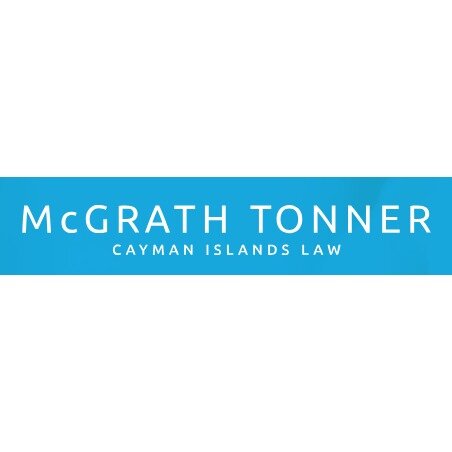Best Landlord & Tenant Lawyers in Cayman Islands
Share your needs with us, get contacted by law firms.
Free. Takes 2 min.
Free Guide to Hiring a Real Estate Lawyer
Or refine your search by selecting a city:
List of the best lawyers in Cayman Islands
About Landlord & Tenant Law in Cayman Islands:
Landlord and Tenant law in the Cayman Islands governs the rights and responsibilities of landlords and tenants in rental properties. It covers various issues such as lease agreements, rent payments, maintenance, property damage, eviction, and disputes between landlords and tenants.
Why You May Need a Lawyer:
You may need a lawyer in Landlord & Tenant matters in Cayman Islands for situations such as lease agreement disputes, eviction proceedings, rent arrears, property damage claims, and breach of contract issues. A lawyer can provide legal advice, represent you in court, and help you understand your rights and obligations under local laws.
Local Laws Overview:
In the Cayman Islands, the Landlord & Tenant Law governs rental agreements and tenancies. Key aspects include the rights and responsibilities of landlords and tenants, regulations on rent increases, procedures for eviction, requirements for security deposits, maintenance obligations, and dispute resolution mechanisms.
Frequently Asked Questions:
1. Can a landlord enter the rental property without permission?
Landlords must provide reasonable notice before entering the rental property unless in emergency situations. Without permission or proper notice, a landlord cannot enter the property.
2. How much can a landlord increase the rent by?
Landlords can only increase the rent with 45 days' notice and within the limits set by the Rent Control Law in the Cayman Islands.
3. What can a tenant do if the rental property is in disrepair?
Tenants should notify the landlord in writing about any disrepair issues and allow a reasonable amount of time for repairs to be made. If the landlord fails to address the problem, tenants may be able to seek legal remedies.
4. Can a landlord evict a tenant without a valid reason?
In most cases, a landlord can only evict a tenant with a valid reason as set out in the Landlord & Tenant Law, such as non-payment of rent, breach of lease terms, or the end of the tenancy period.
5. Are security deposits refundable?
Security deposits should be refunded to the tenant at the end of the tenancy, minus any deductions for damages or unpaid rent as agreed upon in the lease agreement.
6. How long is the notice period for termination of a tenancy?
The notice period for termination of a tenancy varies depending on the type of tenancy agreement and the circumstances of the termination. Typically, it ranges from 30 to 90 days.
7. Can a tenant sublet the rental property?
Tenants must obtain permission from the landlord before subletting the rental property. Subletting without permission may result in eviction.
8. What are the responsibilities of landlords regarding property maintenance?
Landlords are responsible for maintaining the rental property in a habitable condition, making necessary repairs, and ensuring that the property meets health and safety standards.
9. Can a landlord withhold the security deposit for any reason?
Landlords can only withhold the security deposit for reasons stated in the lease agreement, such as damages beyond normal wear and tear, unpaid rent, or cleaning costs.
10. How can a tenant resolve a dispute with their landlord?
If a tenant is unable to resolve a dispute with their landlord directly, they can seek assistance from the Cayman Islands Rental Housing Association or consult a lawyer for legal advice and representation.
Additional Resources:
For more information on Landlord & Tenant law in the Cayman Islands, you can contact the Cayman Islands Department of Housing, the Cayman Islands Real Estate Brokers Association, or seek legal advice from a qualified attorney specializing in Landlord & Tenant matters.
Next Steps:
If you require legal assistance in Landlord & Tenant matters in the Cayman Islands, it is advisable to consult a lawyer who can guide you through the legal process, protect your rights, and help you resolve any disputes effectively.
Lawzana helps you find the best lawyers and law firms in Cayman Islands through a curated and pre-screened list of qualified legal professionals. Our platform offers rankings and detailed profiles of attorneys and law firms, allowing you to compare based on practice areas, including Landlord & Tenant, experience, and client feedback.
Each profile includes a description of the firm's areas of practice, client reviews, team members and partners, year of establishment, spoken languages, office locations, contact information, social media presence, and any published articles or resources. Most firms on our platform speak English and are experienced in both local and international legal matters.
Get a quote from top-rated law firms in Cayman Islands — quickly, securely, and without unnecessary hassle.
Disclaimer:
The information provided on this page is for general informational purposes only and does not constitute legal advice. While we strive to ensure the accuracy and relevance of the content, legal information may change over time, and interpretations of the law can vary. You should always consult with a qualified legal professional for advice specific to your situation.
We disclaim all liability for actions taken or not taken based on the content of this page. If you believe any information is incorrect or outdated, please contact us, and we will review and update it where appropriate.
Browse landlord & tenant law firms by city in Cayman Islands
Refine your search by selecting a city.

















